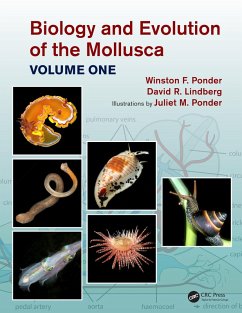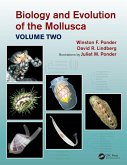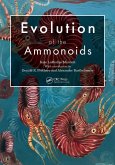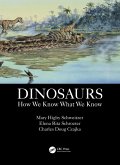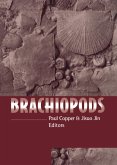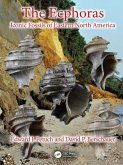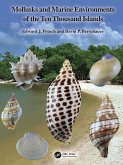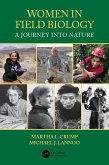Winston Frank Ponder, David R. Lindberg, Juliet Mary Ponder
Biology and Evolution of the Mollusca, Volume 1 (eBook, ePUB)
46,95 €
46,95 €
inkl. MwSt.
Sofort per Download lieferbar

23 °P sammeln
46,95 €
Als Download kaufen

46,95 €
inkl. MwSt.
Sofort per Download lieferbar

23 °P sammeln
Jetzt verschenken
Alle Infos zum eBook verschenken
46,95 €
inkl. MwSt.
Sofort per Download lieferbar
Alle Infos zum eBook verschenken

23 °P sammeln
Winston Frank Ponder, David R. Lindberg, Juliet Mary Ponder
Biology and Evolution of the Mollusca, Volume 1 (eBook, ePUB)
- Format: ePub
- Merkliste
- Auf die Merkliste
- Bewerten Bewerten
- Teilen
- Produkt teilen
- Produkterinnerung
- Produkterinnerung

Bitte loggen Sie sich zunächst in Ihr Kundenkonto ein oder registrieren Sie sich bei
bücher.de, um das eBook-Abo tolino select nutzen zu können.
Hier können Sie sich einloggen
Hier können Sie sich einloggen
Sie sind bereits eingeloggt. Klicken Sie auf 2. tolino select Abo, um fortzufahren.

Bitte loggen Sie sich zunächst in Ihr Kundenkonto ein oder registrieren Sie sich bei bücher.de, um das eBook-Abo tolino select nutzen zu können.
The phylum Mollusca is the second largest group of animals (after Arthropoda) and they occur in virtually all habitats. In this volume general chapters draw from a diverse and extensive literature on molluscan physiology, natural history (including ecology), and interactions with humans.
- Geräte: eReader
- ohne Kopierschutz
- eBook Hilfe
- Größe: 83.94MB
Andere Kunden interessierten sich auch für
![Biology and Evolution of the Mollusca, Volume 2 (eBook, ePUB) Biology and Evolution of the Mollusca, Volume 2 (eBook, ePUB)]() Winston Frank PonderBiology and Evolution of the Mollusca, Volume 2 (eBook, ePUB)46,95 €
Winston Frank PonderBiology and Evolution of the Mollusca, Volume 2 (eBook, ePUB)46,95 €![Evolution of the Ammonoids (eBook, ePUB) Evolution of the Ammonoids (eBook, ePUB)]() Kate Lomedico MarriottEvolution of the Ammonoids (eBook, ePUB)63,95 €
Kate Lomedico MarriottEvolution of the Ammonoids (eBook, ePUB)63,95 €![Dinosaurs (eBook, ePUB) Dinosaurs (eBook, ePUB)]() Mary Higby SchweitzerDinosaurs (eBook, ePUB)86,95 €
Mary Higby SchweitzerDinosaurs (eBook, ePUB)86,95 €![Brachiopods (eBook, ePUB) Brachiopods (eBook, ePUB)]() Paul CopperBrachiopods (eBook, ePUB)63,95 €
Paul CopperBrachiopods (eBook, ePUB)63,95 €![The Ecphoras (eBook, ePUB) The Ecphoras (eBook, ePUB)]() Edward J. PetuchThe Ecphoras (eBook, ePUB)51,95 €
Edward J. PetuchThe Ecphoras (eBook, ePUB)51,95 €![Mollusks and Marine Environments of the Ten Thousand Islands (eBook, ePUB) Mollusks and Marine Environments of the Ten Thousand Islands (eBook, ePUB)]() Edward J. PetuchMollusks and Marine Environments of the Ten Thousand Islands (eBook, ePUB)51,95 €
Edward J. PetuchMollusks and Marine Environments of the Ten Thousand Islands (eBook, ePUB)51,95 €![Women in Field Biology (eBook, ePUB) Women in Field Biology (eBook, ePUB)]() Martha L. CrumpWomen in Field Biology (eBook, ePUB)40,95 €
Martha L. CrumpWomen in Field Biology (eBook, ePUB)40,95 €-
-
-
The phylum Mollusca is the second largest group of animals (after Arthropoda) and they occur in virtually all habitats. In this volume general chapters draw from a diverse and extensive literature on molluscan physiology, natural history (including ecology), and interactions with humans.
Dieser Download kann aus rechtlichen Gründen nur mit Rechnungsadresse in A, B, BG, CY, CZ, D, DK, EW, E, FIN, F, GR, HR, H, IRL, I, LT, L, LR, M, NL, PL, P, R, S, SLO, SK ausgeliefert werden.
Produktdetails
- Produktdetails
- Verlag: Taylor & Francis
- Seitenzahl: 924
- Erscheinungstermin: 18. November 2019
- Englisch
- ISBN-13: 9781351115643
- Artikelnr.: 58272172
- Verlag: Taylor & Francis
- Seitenzahl: 924
- Erscheinungstermin: 18. November 2019
- Englisch
- ISBN-13: 9781351115643
- Artikelnr.: 58272172
Winston F. Ponder (Ph.D, D.Sc, FRZSNSW) was educated in New Zealand, and employed as a curator at the Australian Museum in 1968, where he was a Principal Research Scientist in 1980 to his retirement in 2005. He has held honorary appointments at several universities through co-supervision of post graduate students and running courses on systematics and on Mollusca. He is currently a Senior Research Fellow of the Australian Museum. He has been actively involved with several societies, in particular, the Malacological Society of Australasia, and edited their journal, Molluscan Research, for 13 years (until last Dec.). He has served on several committees, including the Australian Biological Resources Survey (ABRS) Advisory Committee for six years. His research interests centre on molluscan morphology, systematics, and phylogenetics, especially of gastropods. He has also been involved in the conservation of invertebrates, and his recent research is focused on the biology and systematics of freshwater and estuarine molluscs of Australia and the region as well as the aquatic invertebrate fauna of springs associated with the Australian Great Artesian Basin. He co-edited a book on the phylogeny of molluscs with D. Lindberg (2008) and has edited three other books and, to date, is the author of 247 reviewed publications. He is also involved in the production of interactive keys to marine and freshwater molluscs.
David R. Lindberg is Professor Emeritus of Integrative Biology, Curator Emeritus in the UC Museum of Paleontology, and a former member of the Center for Computational Biology at UC Berkeley. He is a former Chair of the Department of Integrative Biology, Director of the UC Museum of Paleontology, and Chair of the UC Berkeley Natural History Museums. He has authored over 125 peer-reviewed papers and edited or authored 3 books on the evolutionary history of nearshore marine organisms and their habitats. At Berkeley, he served as major advisor to 21 Ph.D graduate students and 6 post-doctoral researchers. In addition to providing graduate seminars in evolution and organismal biology, he regularly taught a marine mammal course, an invertebrate zoology course with laboratories, and 2 semester principals of phylogenetics course. Prof. Lindberg has conducted research and fieldwork along the rocky shores of the Pacific Rim for over 40 years. In addition to his research and teaching, Prof. Lindberg was actively involved in K·16 outreach projects at the UC Museum of Paleontology, and focused on the use of the Internet to increase access to scientific resources, and the training of teachers in principles of evolutionary biology, science, and global change.
David R. Lindberg is Professor Emeritus of Integrative Biology, Curator Emeritus in the UC Museum of Paleontology, and a former member of the Center for Computational Biology at UC Berkeley. He is a former Chair of the Department of Integrative Biology, Director of the UC Museum of Paleontology, and Chair of the UC Berkeley Natural History Museums. He has authored over 125 peer-reviewed papers and edited or authored 3 books on the evolutionary history of nearshore marine organisms and their habitats. At Berkeley, he served as major advisor to 21 Ph.D graduate students and 6 post-doctoral researchers. In addition to providing graduate seminars in evolution and organismal biology, he regularly taught a marine mammal course, an invertebrate zoology course with laboratories, and 2 semester principals of phylogenetics course. Prof. Lindberg has conducted research and fieldwork along the rocky shores of the Pacific Rim for over 40 years. In addition to his research and teaching, Prof. Lindberg was actively involved in K·16 outreach projects at the UC Museum of Paleontology, and focused on the use of the Internet to increase access to scientific resources, and the training of teachers in principles of evolutionary biology, science, and global change.
